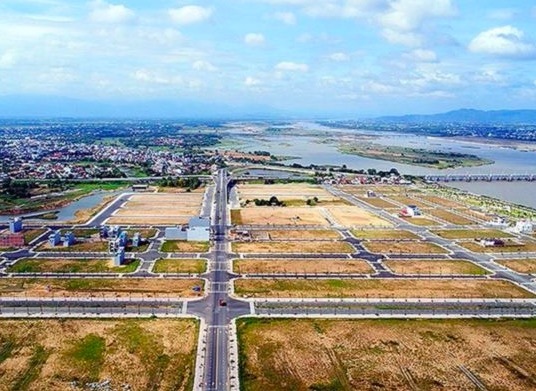Decree 20 has impact on property sector
Decree 20 has impact on property sector
The implementation of Decree 20/2017/ND-CP (Decree 20) has affected the production and business activities of enterprises, especially in the real estate sector.

Nguyen Tran Nam, chairman of the Viet Nam Real Estate Association, spoke on the decree in a seminar on finding solutions for real estate enterprises to overcome difficulties during its implementation. It includes regulations on the deductibility of loan interest, in effect since May 1, 2017 for enterprises with associated transactions.
The regulations do not match reality and affect the interests of enterprises, according to Nam. A cap on borrowing costs will have a negative impact on low-profit businesses and make it more difficult for enterprises to source capital, especially for businesses that need huge amounts of capital like in the real estate sector.
"The investment climate is equal for domestic and foreign invested enterprises, especially in terms of taxation. However, some sectors that require large investments need interest rate adjustments," Nam said.
According to Decree 20, the deductibility of loan interest is capped at 20 per cent of earnings before interest, tax, depreciation and amortisation (EBITDA). Expenses for loan interest exceeding 20 per cent are taxable.
Economist Can Van Luc, a member of the National Financial and Monetary Advisory Council, spoke at the seminar. He said that in Viet Nam, the expense for loan interest at 30 per cent would be reasonable because the Organisation for Economic Co-operation and Development (OECD) has an average rate of 20 per cent.
However, it is still necessary to consider the characteristics of some industries and enterprises, according to Luc. There needs to be a roadmap on implementing the regulations, especially for businesses that must borrow up to 50 per cent of their investment needs to gradually reduce their percentage of loans. For instance, they need to reduce 10 per cent of their loans each year.
Dinh Mai Hanh, a Tax Partner of Deloitte Vietnam, said the Government issued the decree to manage tax issues for enterprises with associated transactions, especially multi-national enterprises. Therefore, the provision should be applied only when enterprises have capital transactions from their affiliates.
At the same time, the cap should be calculated on the interest expense of loans from parties with associated partnerships, but not from independent parties such as banks and credit organisations." In many countries, the cap is calculated based on interest expenses of loans from affiliates abroad but not affiliates at home," she said.
The OECD has recommended that countries should have a schedule to implement the regulation carefully with enterprises’ situations, operation models and capital structures. This would give enterprises time to restructure their finances and would reduce the impact on competitiveness of enterprises that have large debt volumes, she said.
Many local enterprises must pay higher corporate income taxes according to regulations on the deductibility of loan interest under Decree 20. Vietnamese businesses, especially those investing in key industries, end up paying higher income taxes because they borrow huge amounts of capital.
Lenders must pay taxes on income from the loan interest, while borrowers pay for exceeding the borrowing costs ceiling.
The regulation has also made corporations limit their investments in business development in some fields that need to encourage development.
Capping the interest rate ceiling for loans would impact lending and borrowing activities that are common in state corporations and private firms.























